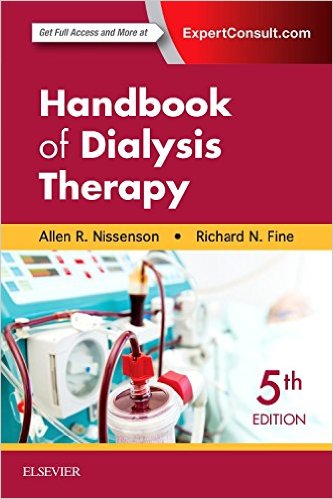
[highlight color=”red”]Handbook of Dialysis Therapy, 5e 5th Edition[/highlight]
[ads2]
Providing practical, immediately useful guidelines that can be applied directly to patient care, Handbook of Dialysis Therapy is a must-have resource for all dialysis caregivers. This new edition has been updated with the latest cutting-edge technology, dialysis techniques, and complications related to various diseases for both pediatric and adult patients. In-depth yet concise, it explains complex dialysis concepts through abundant diagrams, photos, line drawings, and tables, while its readable hands-on approach allows for quick review of key information.
- Presents the practice-proven experience of top experts in the field of dialysis treatment.
- Offers dialysis guidance for both adult and pediatric patients in one convenient source.
- Features a readable hands-on approach, allowing you to quickly review the complicated concepts of dialysis.
- Includes helpful annotated bibliography lists in each section for further in-depth research on any subject.
- Explains complex dialysis concepts through abundant diagrams, photos, line drawings, and tables.
[ads1]
- Features new chapters on care delivery, patient-centric care, rehabilitation, quality of life, geriatrics, and interventional nephrology.
- Includes information on the management of the pediatric patient undergoing dialysis.
- Defines the quality imperatives, roles, and responsibilities of dialysis facility medical directors and attending nephrologists.
- Updates nephrologists on the latest alternative dialysis modalities.
- Expert Consult eBook version included with purchase. This enhanced eBook experience allows you to search all of the text, figures, images, and references from the book on a variety of devices.


